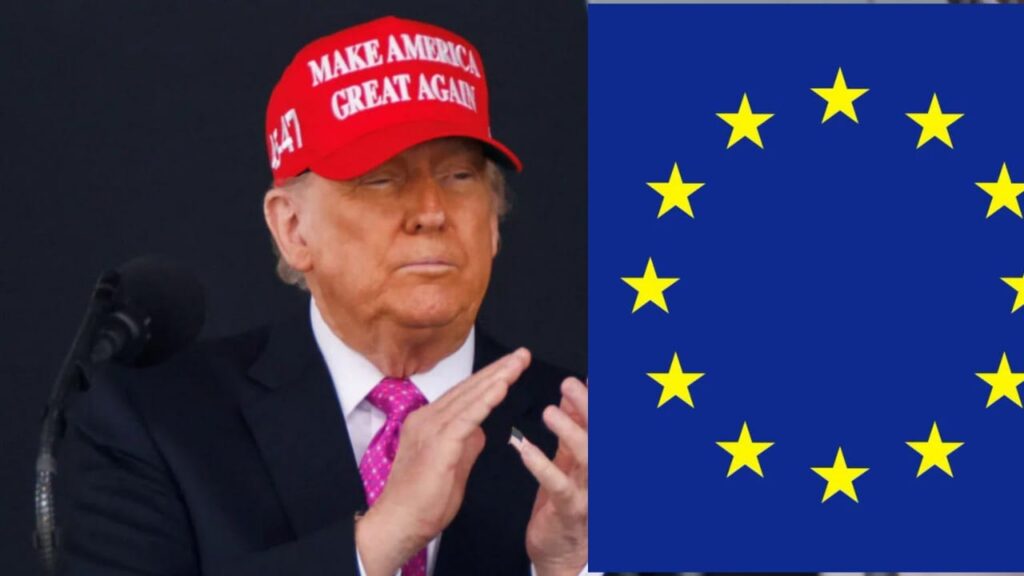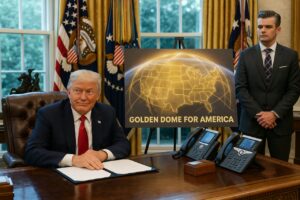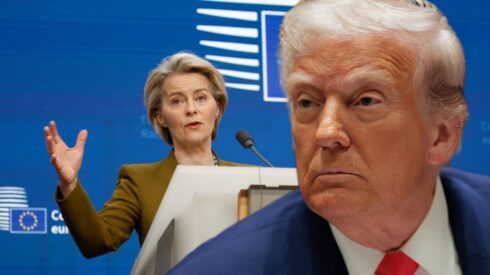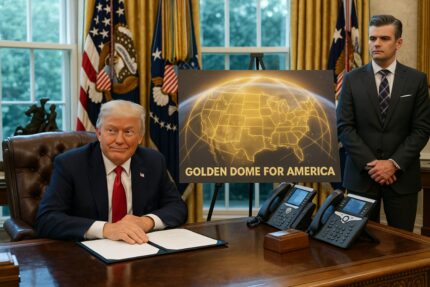President Donald Trump announced Sunday that a 50% tariff on goods imported from the European Union, originally slated to begin June 1, has been delayed until July 9. The decision followed a telephone conversation with European Commission President Ursula von der Leyen, in which both leaders agreed to reopen negotiations aimed at resolving long-standing trade tensions between the United States and the 27-nation bloc.
Speaking to reporters in Morristown, New Jersey, before departing for Washington, Trump said von der Leyen had expressed a clear desire to “get down to serious negotiations.” He emphasized that he had made it clear to all involved that the EU must approach the talks in good faith. “She wants to rapidly get together and see if we can work something out,” Trump stated, portraying the call as a positive step forward after weeks of escalating rhetoric.
Trump initial stance Escalating Trade Tensions Prompt Market Turmoil
Trump’s initial announcement last Friday that he would impose a 50% tariff on EU goods shocked markets and reignited fears of a global trade war. The threat, which included the possibility of a separate 25% tariff on Apple products manufactured overseas, sent stock markets tumbling and rattled investors.
“Just when markets believed the worst of the tariff battle had been overcome, President Trump threatened a 50% tariff against the EU and a possible 25% tariff on iPhones,” said Klaus Baader, an analyst with SG Securities. Baader warned that such moves, even if intended as negotiation tactics, fuel economic uncertainty. “This back-and-forth is not good for global growth or markets,” he added in a note to clients.
The EU, which is one of the United States’ largest trading partners, has consistently pushed back against what it views as protectionist policies from Washington. The proposed tariffs, targeting a broad swath of goods, were seen as a significant escalation in the long-simmering dispute.
A Fragile Truce Reached to Buy Time for Negotiations

The decision to delay the tariffs appears to have cooled tensions — at least temporarily. Trump later confirmed the delay in a statement posted on his Truth Social platform, calling it “my privilege” to grant the extension. “I agreed to the extension — July 9, 2025 — It was my privilege to do so,” he wrote.
Von der Leyen also struck a conciliatory tone, calling the transatlantic economic partnership “the world’s most consequential and close trade relationship.” She stressed the importance of taking time to work toward a comprehensive agreement. “Europe is ready to advance talks swiftly and decisively,” she said. “To reach a good deal, we would need the time until July 9.”
Though no formal meeting dates have been announced, both sides have expressed a willingness to engage at the highest levels in the coming weeks, raising hopes of a breakthrough.
EU and U.S. Face Key Trade Flashpoints
The pending negotiations are expected to tackle several contentious issues, including tariffs on steel and aluminum, regulatory standards, digital taxation, and agricultural exports. Trump has repeatedly criticized the EU for what he describes as unfair trade practices and bureaucratic hurdles that disadvantage American companies.
The EU, for its part, has accused Washington of undermining multilateral trade institutions and violating World Trade Organization rules. While von der Leyen’s statement on Sunday emphasized cooperation, diplomats in Brussels remain wary of the U.S. administration’s unpredictable approach to trade.
Analysts suggest the extension to July 9 gives both sides a narrow window to reach a mutually beneficial deal before punitive tariffs return to the table. The outcome of these talks could significantly shape the global trade landscape for years to come.
Political and Economic Stakes High as Deadline Looms
Trump’s handling of trade relations is under renewed scrutiny. His tough stance on trade has long appealed to segments of the American citizens, particularly in manufacturing-heavy states. However, prolonged tensions with key allies like the EU risk damaging business confidence and disrupting supply chains.
European leaders are also under pressure to defend the continent’s economic interests while maintaining stable relations with Washington. Any agreement will likely require delicate compromises on both sides.
As July 9 approaches, the spotlight will intensify on the Trump administration and the European Commission. A successful negotiation could mark a major diplomatic win for both parties — failure could usher in another round of retaliatory tariffs and market upheaval.














